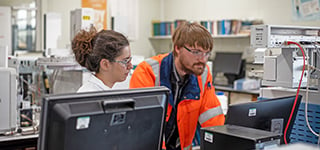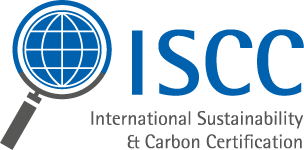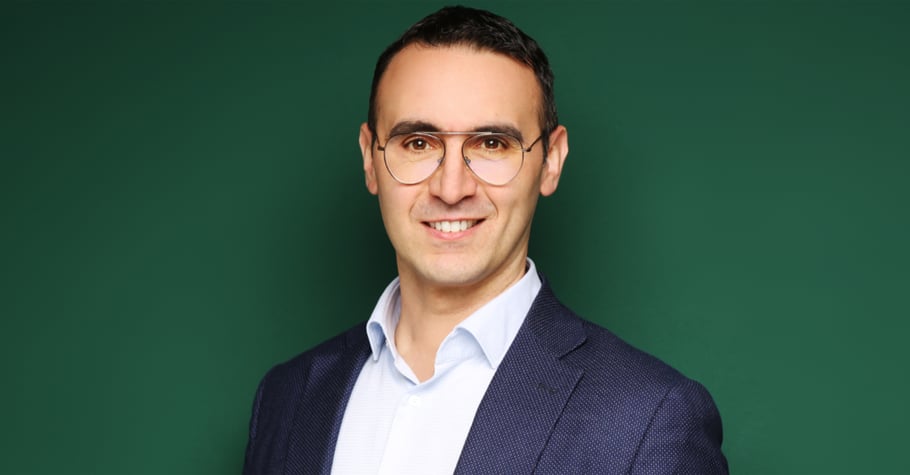The technology behind biofuels and synthetic fuels is evolving, opening up new possibilities for emission reduction. Alessandro Ferrari, Head of Development of Performance Fuels at Haltermann Carless provides insights to Automotive Powertrain Technology International magazine.
“We strongly believe we have the capabilities and tools, and the right company size, to be able to find the market synergies in an intelligent way, how to use the hydrocarbon streams, defossilize them and create that future readiness in the market,” states Alessandro Ferrari, Head of Development Performance Fuels, Haltermann Carless (copyright: private)
Note: The following interview has been published by the magazin Automotive Powertrain Technology International, January 2024 edition (pages 54/55). Text written by the editor Laurence Butcher.
Defossilization of transport with sustainable fuels
It is increasingly clear that sustainable liquid fuels will be a vital element in the defossilization of transport, both automotive and in other sectors such as aviation and marine. While electrification will account for a part of the vehicle fleet, there will still be hard to electrify high density energy applications and a legacy fleet of Internal Combustion Engine (ICE) vehicles for several decades.
The development of such fuels is gathering pace, and at the forefront of the creation of truly ‘drop in’ solutions is Halterman Carless, a company of HCS Group with over a 160-years of experience in the hydrocarbon industry. “As a group, we want to go fossil-free,” says Alessandro Ferrari, Head of Development of Performance Fuels, at Haltermann Carless. The company is not solely an automotive fuel supplier; for example, it is the first German company to pursue a Sustainable Aviation Fuel (SAF) production plant and has signed an agreement for the supply of SAF to Lufthansa. Furthermore, the chemical company is also heavily involved in the production of sustainable industrial solvents and other renewable chemicals.
HCS Group recognises that the global energy requirements for transportation will be diverse, as Ferrari outlines. “We believe that global sustainable mobility is a mix of different solutions. Fossil-free liquid fuels will play a fundamental role to reduce the greenhouse gas emissions of the existing fleet, and also the next generation of ICE.” This final point is an important one. ICE’s will continue to be produced for the foreseeable future and their efficiency will increase. “Part of that means moving to higher compression ratios, pre-chamber spark plug, lean combustion, which in turn needs fuels with greater knock resistance.”
Challenges of the sustainable fuel industry
Relatively speaking, it is still early days for the sustainable fuels industry, and development is moving at pace. Ferrari highlights several of the key challenges. “For the maximum greenhouse gas (GHG) reduction, you of course want 100% fossil-free fuel. But at the same time, that fuel still needs to be compliant with regulations and its price has to remain viable, balancing between performance and cost.” He points out that currently, because of the relatively small volumes of fuel in production, the costs of feedstocks remain high. “Because it is a niche product, you don’t have those economies of scale yet.”
There are then the ICE specific challenges to address. “The fuel has to be compatible with all the engine parts, fuel lines, tanks and other components, which is also a warranty matter for vehicle manufacturers. Then one has the combustion performance, not just the efficiency, but also the emissions, which are not only CO2. We aim at clean combustion, low emissions and a drop-in solution.”
A claim often levelled at synthetic fuels and biofuels is that they are not an efficient use of renewable energy. However, looking at a global scale, it is the case that the areas where there is the greatest potential for low cost renewable energy generation are not necessarily where it is most needed. Synthetic fuels are an ideal means to distribute this energy. Ferrari also highlights the point that fuels can be decarbonized at every stage of the production process.
“The Tank to Wheel emissions of renewable fuels can be considered neutral because for producing these fuels, the amount of CO2 emitted at the tailpipe has been originally captured both for synthetic and biofuels”. He also noted that “the Well to Wheel greenhouse gas emissions using biofuels today is reduced by ca. 72%-75% vs. the fossil fuels, as the biomass itself is a carbon capturing system. By using renewable energy for the synthetic fuels, more than 92% Well to Wheel GHG reduction can be achieved”.
Performance fuel development: Motorsport is a vital proving ground for innovations
While mainstream biofuel and synthetic fuel supplies are still limited in many markets, for example the UK still only has 10% renewable blends on general sale, in motorsport, the uptake of sustainable fuels has been enthusiastic. The last five years has seen multiple high profile race series adopt sustainable fuels, and the acceleration in their adoption has impressed Ferrari. HCS Group, via its Carless and ETS Racing Fuels brands, is heavily involved in the supply of fuels for both competition and classic vehicles.
“In 2021, it started with the WTCR mandating 15% renewable content in its fuels, then the next year you had the WRC pushing straight to 100%, complete with hybrid systems,” highlights Ferrari. “You have to acknowledge the role of the FIA in this situation, having the guts to say, let’s try another way, and going to 100% renewable fuels.” Other series have also followed suit, including the World Endurance Championship (100% biofuel) and F1 steadily upping the renewable content of its fuels, targeting 100% in 2026.
This is why motorsport is such a vital proving ground, giving brands such as Haltermann Carless and ETS Racing Fuels a sandbox in which they can develop fuels hand in hand with some of the latest advances in ICE technology. “It is still an evolution, and the next generation fuels we are working on are looking to improve their properties. For example, removing some of the components that are particularly heavy in the cut of gasoline, while at the same time improving the evaporation patterns. You could also use ICE hardware modification to approach this but that is not the point of a drop-in fuel. We want to have the fuels working in every vehicle and with every technology.”
“In the past, the easiest way to make biofuels or sustainable fuels – and still today – is to have high alcohol content. The problem is that these fuels are not drop-in. Now, we have blends of hydrocarbons, and that leads you towards much more of a drop-in fuel. There is still plenty to do, like with the knock resistance, evaporation and the suitability of the fuels for use with direct injection.”
Lubricant, fuel and engine development will go hand in hand
Moving beyond fuels, Ferrari also points out that there are benefits to be had from removing fossil content from other hydrocarbon-based fluids, including lubricants. “That will go together with fuel and engine development. There are still a lot of engines to be developed in the future and development of new fuels and lubricants are needed for those.”
Ferrari is of the opinion that the market is already there for increased production of fossil-free fuels, however, “regulations globally need to catch up and encourage their widespread adoption, also by providing investment security. Fortunately, the trend seems to be towards this.”
It will then be up to companies such as HCS Group and Haltermann Carless to ensure they are ready for the market opening up. “We strongly believe we have the capabilities and tools, and the right company size, to be able to find the market synergies in an intelligent way, how to use the hydrocarbon streams, defossilize them and create that future readiness in the market,” he concludes.
xxx
This might also interest you:
About Haltermann Carless
Haltermann Carless is a pioneer and leading international supplier of high-value hydrocarbon solutions in Mobility, Life Science, Industrial and Energy. With access to renewable resources from strategic partners, the company drives the development of sustainable products making a contributing to defossilisation and the reduction of greenhouse gas emissions. The company employs 500 people and has production sites in Germany, the UK, France and the USA. As a company of HCS Group, Haltermann Carless holds ISCC EU and ISCC PLUS certification and has been awarded Gold status by EcoVadis. More information: www.haltermann-carless.com
Media contact
Sandra Sparenberg
HCS Group GmbH
Edmund-Rumpler-Str. 3
60549 Frankfurt am Main, Germany
+49 69 695 386-117
pr@h-c-s-group.com


















